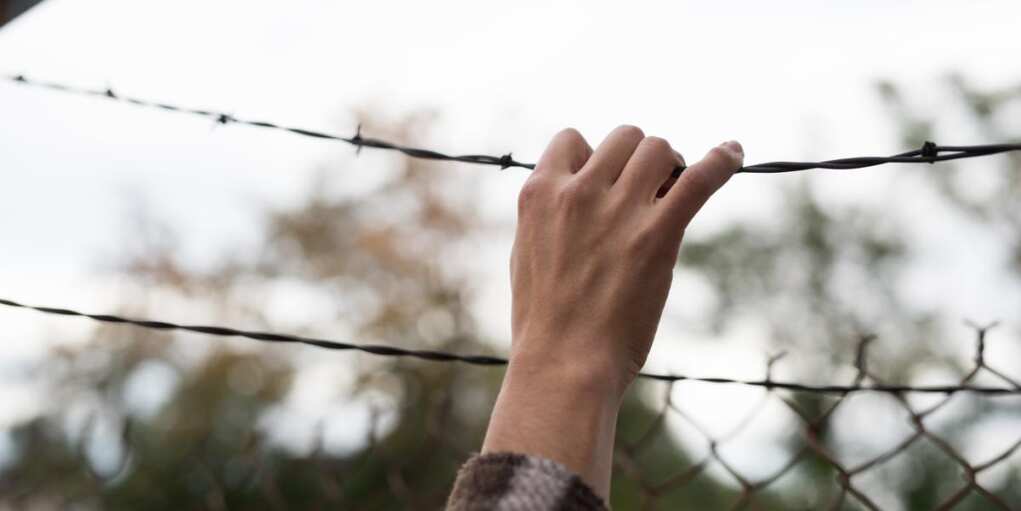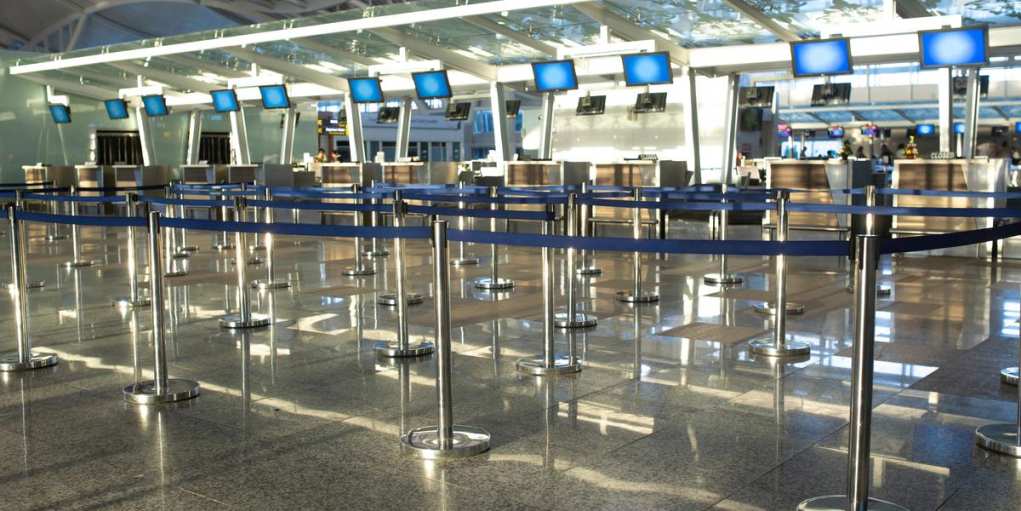SCOTUS Could Deliver Massive Win for Religious Freedom
The Supreme Court just kicked off a term that could dramatically expand religious liberty protections across the country—and the left isn’t going to like where it’s headed. In a series of three high-profile cases, the Court has the opportunity to clarify just how far the First Amendment’s Free Exercise Clause can go in shielding Americans […]
Young Hero DJ Daniel Nears Goal of 1,000 Police Swear-Ins
Devarjaye “DJ” Daniel, the 13-year-old Texas boy who captured America’s heart during President Trump’s State of the Union address earlier this month, continues his extraordinary mission to be sworn in by 1,000 law enforcement agencies — and he’s almost there. DJ, who is battling terminal brain cancer, was honored by Trump in the House chamber […]
Tampons in Third Grade Boys’ Bathrooms? Only in California
Governor Gavin Newsom has once again made headlines for a progressive policy that’s leaving many parents shaking their heads. Thanks to a statewide initiative now in effect, California public schools serving third grade and up must provide free menstrual products not only in girls’ and all-gender restrooms—but also in at least one boys’ restroom per […]
Kim Jong Un’s Suicide Drones Just Went Full Skynet
North Korea’s beloved dictator and full-time Bond villain, Kim Jong Un, just rolled out his latest toy for world domination: AI-powered suicide drones. Yes, you read that right. Because if there’s one thing the planet needed less of, it’s artificial intelligence strapped to explosives in the hands of a nuclear-obsessed lunatic with a bowl cut. […]
Trump Just Crushed China’s Tech War—Here’s How
President Trump just delivered another thunderous blow to the Chinese Communist Party’s ambitions, and it couldn’t come soon enough. On Tuesday, the Trump administration announced a sweeping new round of export controls aimed at choking off China’s access to high-end U.S. technology—especially the kind that can be weaponized against Americans. Through the Commerce Department’s Bureau […]
Trump’s Tariffs Trigger Trillions in U.S. Investment
President Trump’s bold trade playbook is paying off—and this time, the payoff isn’t measured in political points, but in jobs, factories, and cold hard cash pouring back into the American economy. After years of watching globalist trade deals hollow out U.S. manufacturing and ship middle-class jobs overseas, Trump’s tariff threats and America-first economic policy are […]
MSNBC’s O’Donnell Worn Out by Trump’s Relentless Pace
President Donald Trump’s high-energy leadership has left MSNBC’s Lawrence O’Donnell tapped out, prompting him to extend a hiatus from his nightly program, “The Last Word.” His absence from Monday’s broadcast caught viewers off guard, especially after a planned week off stretched further, fueling speculation about his future at the struggling network. O’Donnell had opened up […]
RFK’s Health Crusade Sparks State-Level Revolution
President Donald Trump’s decision to tap Robert F. Kennedy Jr. as HHS Secretary has unleashed a tidal wave of health reform, with Kennedy’s Make America Healthy Again initiative inspiring lawmakers across the country to tackle long-ignored issues. At the federal level, Kennedy’s team has launched a groundbreaking commission to overhaul food safety rules, stripping corporations […]
Musk Vows Legal Action Over CNN ‘Nazi’ Smear
Elon Musk, tech titan and key figure in the Trump administration, fired off a legal warning Friday after former Democratic Rep. Jamaal Bowman unleashed a barrage of insults during a CNN roundtable Thursday night. “I’ve had enough. Lawsuit inbound,” Musk posted to X, signaling his intent to challenge Bowman’s televised tirade. Bowman, ousted in last […]
Republicans Push REINS Act to Rein In Activist Judges
Florida Republican Rep. Kat Cammack took to Fox Business’ “The Evening Edit” Thursday night to spotlight a pressing issue—activist judges undermining the will of the American people—and Republicans are rallying behind her call for action. She pointed to a recent ruling by a Biden-appointed judge blocking President Donald Trump’s executive order banning transgender individuals from […]
Trump’s Gold Card Visa Sets a High Bar With Tough Vetting
President Donald Trump appeared on Fox News’ “Ingraham Angle”—and conservatives like me are encouraged by his latest proposal: a gold card visa program targeting wealthy immigrants willing to invest $5 million for residency. He shared his vision with Laura Ingraham, outlining a plan to bolster the economy while maintaining a firm grip on who gets […]
Leftist Thugs Swat Conservative Influencer in Disgusting Hit Job
Juanita Broaddrick, a conservative firebrand and Clinton accuser, got hit with a swatting attack Monday night, and conservatives like me are sick to death of these gutless leftists targeting our own. She posted a video on X showing police rolling up to her Arkansas home after a fake call claimed masked gunmen were inside shooting […]
Texas Nabs Evil People Running Bloody Racket
Texas showed it’s not messing around Monday night when cops arrested two people in McAllen for allegedly performing abortions that break every law in the book. Conservatives like me are tipping our hats because this is what we’ve been demanding—real justice in a state that’s fed up with the left’s free-for-all on life. Republicans across […]
Trump’s Cooking Up a Travel Ban That’ll Rattle the Globalists
You’ve got to picture this, friends, because it’s the kind of thing that makes you wonder how long the open-border crowd thought they’d get away with it. On Tuesday night, Trump’s team let slip they’re mulling a travel ban that could hit citizens from dozens of nations—word is, it’s all laid out in an internal […]
Democrats Turn On Each Other—Old Guard Mocks New Whiners
You’ve got to hear this one, friends, because it’s the kind of story that makes you wonder what’s happened to folks’ priorities these days. James Carville, that old Democratic warhorse, sat down with Fox News on Friday night and lit into liberals after a reality TV gal walked out on her groom for not being […]
















